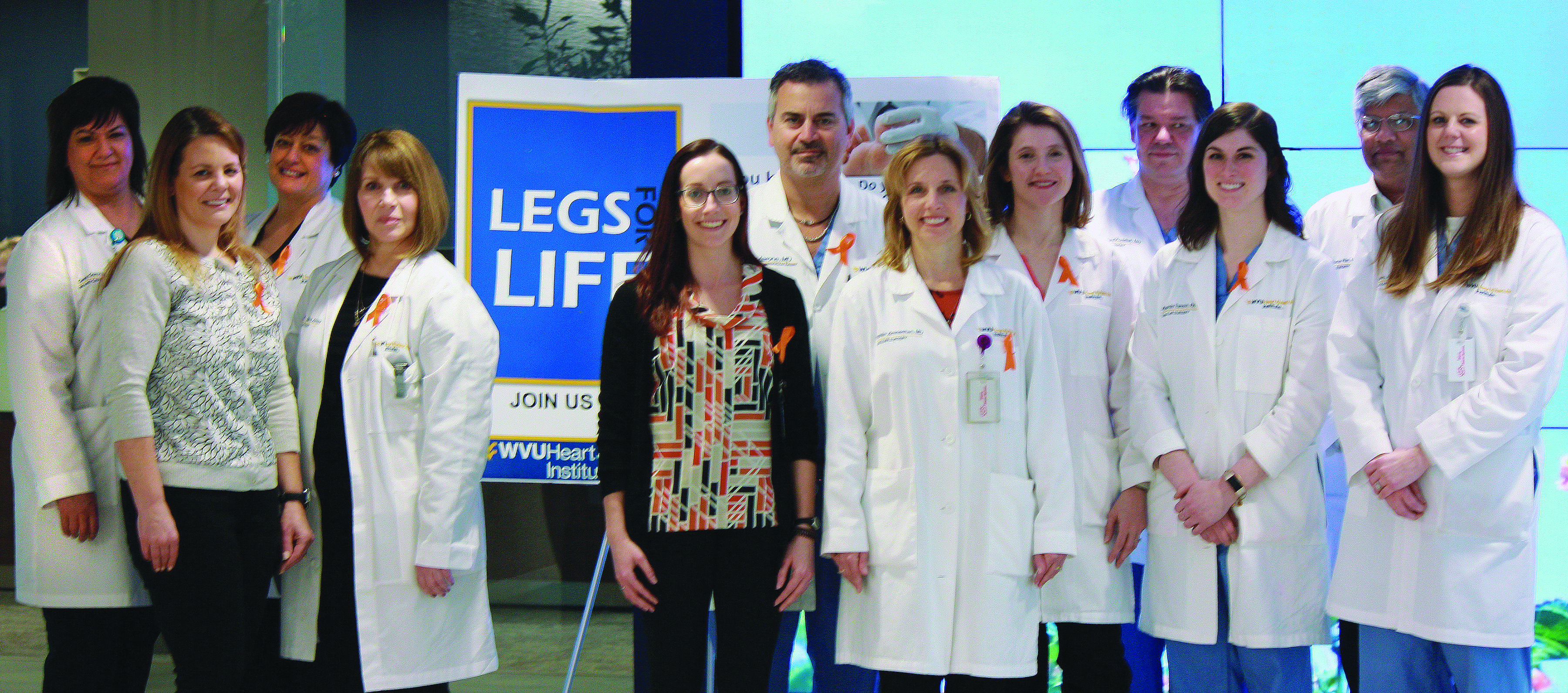WVU Heart and Vascular Institute recognizes Limb Loss Awareness Month

MORGANTOWN, W.Va. – The WVU Heart and Vascular Institute is working to raise awareness of the causes of limb loss during Limb Loss Awareness Month. Losing a limb is a life-changing event that affects 185,000 Americans every year.

“The majority of amputations are caused by a combination of vascular disease and diabetes,” Samantha Minc, M.D., vascular surgeon at the WVU Heart and Vascular Institute, said. “These amputations are highly preventable if treated with timely podiatric and vascular surgical intervention. In fact, foot ulcers precede 85 percent of diabetes-related amputations.”
It is estimated that by 2050, 3.6 million Americans will be living with limb loss. Studies have shown that people living with limb loss are more likely to experience depression and have nearly double the lifetime healthcare costs compared to the national average.
Smoking, cardiovascular disease, and complications from diabetes are the leading causes of limb loss.
“Limb loss is highly preventable,” Dr. Minc said. “It is important that diabetics be vigilant about any loss of feeling in their limbs due to diabetic nerve damage because it can often cause injuries to go unnoticed and untreated.”
West Virginians experience the highest prevalence of diabetes in the country and some of the highest levels of cardiovascular disease. Vascular surgery research done at the WVU Heart and Vascular Institute has also revealed that West Virginians undergo amputations at higher rates than the rest of the country.
“Prevention is key,” Minc said. “Patients with diabetes should wear proper diabetic shoes and never go barefoot. They should also be sure to check their feet every day, and seek care early if they develop a foot wound.
“By managing your diabetes, maintaining a healthy lifestyle, and quitting smoking, your risk of limb loss is greatly decreased. If you do develop a foot ulcer, the wound care specialists and vascular surgeons at the WVU Heart and Vascular Institute have access to the most advanced cardiovascular and wound care procedures to help you heal.”
For more information on the WVU Heart and Vascular Institute, visit WVUMedicine.org/heart.